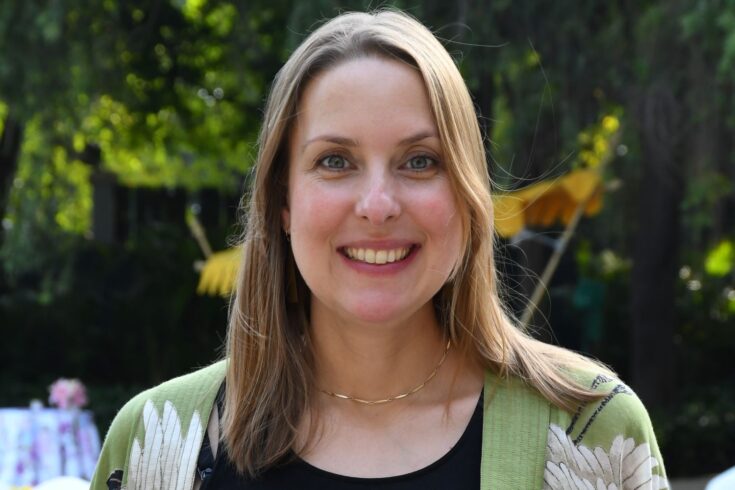
Rebecca Fairbairn
REF Director
This Q&A is the first in a series of blogs following our online Town Hall session on applying to be a panel member for REF 2029 which you can re-watch here. This blog answers many of the questions that came up and highlights key points for potential applicants. I want to encourage all those with relevant experience to apply directly via the REF website.
A REF panel has two clear phases: criteria and assessment
We’re currently recruiting for the criteria setting phase of REF 2029. In the second half of 2025, panels will meet to set assessment criteria and methods criteria, the detailed “rules of the REF”. After the criteria phase, Higher Education Institutions (HEIs) prepare their submissions, and provide us with their “intentions to submit” which gives us an idea of the shape and size of submissions. With this we will recruit again, making sure we have enough assessors with the right expertise for the assessment phase.
Although most criteria phase panellists continue to the assessment phase, we anticipate needing to more than double the size of panels for the assessment phase. If you don’t want to join the criteria phase, or aren’t accepted, apply during the second round of recruitment in 2027.
What can I apply for?
For the criteria setting phase it’s important we have a wide range of expertise to make sure the detailed rules work across the three elements of assessment for REF 2029 – contribution to knowledge and understanding, engagement and impact, and people, culture and environment.
We are seeking specialist experts to join the main panels, including in international research, people, culture and environment, impact and engagement, and interdisciplinarity. Additionally, sub-panels require members who are practicing researchers with a breadth of research expertise. This expertise will include commissioning, applying, or making use of research, experts concerning impact and engagement and people, culture, and environment.
Later, for the assessment phase, we expect to recruit assessors who will support the sub-panel members by providing expertise on assessing: research outputs within the sub-panel area; engagement with and impact of research; and the PCE element of submissions.
How do I apply?
There’s no nomination process, just a single application form that covers all roles you might be interested in.
Your expertise might sit across more than one Unit of Assessment (UoA), you might have something to bring at the sub-panel and at the main panel levels. Great – tick multiple boxes to apply for multiple roles across the same form. If your examples cover multiple questions, just refer to your other answers without repeating yourself.
Who reads my application?
The more roles you apply for, the more people are likely to read your application because it will go to all the relevant chairs. However, you will only be able to take up one role due to workload and scheduling conflicts, as panel dates will overlap. Main panel chairs and (soon-to-be approached) sub-panel chairs will begin the complex task of building their panels. Panels must include voices that understand the breadth and complexity of the disciplines included in their remit. Each panel chair will take an approach based on the shape of their UoA and their own expertise. We also need to keep membership numbers manageable and affordable. Panel chairs will read all relevant applications and may seek sector bodies’ help to make sure their panels have been constructed in a way that will hold the confidence of the community. Some applications might be passed between sub-panel chairs if they fit better elsewhere.
How will they assess my application?
We’ve given a clear outline of what we’re looking for on our website and in the application form.
The assessment criteria are bullet pointed on the form above each section you need to complete. Shortlisters will consider how well the application answers those points: Does the answer address them directly? Does it clearly demonstrate how the applicant’s experience relates to the role they are applying for?
They’ll use a seven-point scale to grade each question based on the evidence provided: outstanding, strong, good, acceptable, moderate, minimal, or no evidence.
It’s not always straightforward. Some candidates may not answer all points or include additional relevant information. That’s fine – indeed it’s welcomed. We want a wide range of skills and experiences – as long as the application clearly shows what you bring to the role.
What makes for a good application?
The best applications I have read provide examples of how the applicant’s experience relates to what will be required on the panel. They show they’ve thought about the challenges of being on a REF panel and how they’d approach these. They give me pause for thought about the value of diverse approaches, and they sometimes make me smile as they give real human insight into what they, as a person, will bring to the team.
The worst applications list everything the applicant has done (or worse, published) that partially relates to the question. This leaves me with no confidence that the applicant understands the role or that they can communicate effectively.
What’s next?
By the time the opportunity to apply closes on midday 28 April, we will have our sub-panel chairs and deputy chairs in place. They will then begin the work of reading your applications and building their panels. We hope this process will be complete by July.
We will then hold our first panel meetings. These initial meetings will be in-person rather than hybrid to allow panels to build relationships quickly, making future online meetings easier. We will need to quickly develop working methods and define the framework for the assessment.
So all that’s left is to put yourself forward! We can’t wait to hear from you.